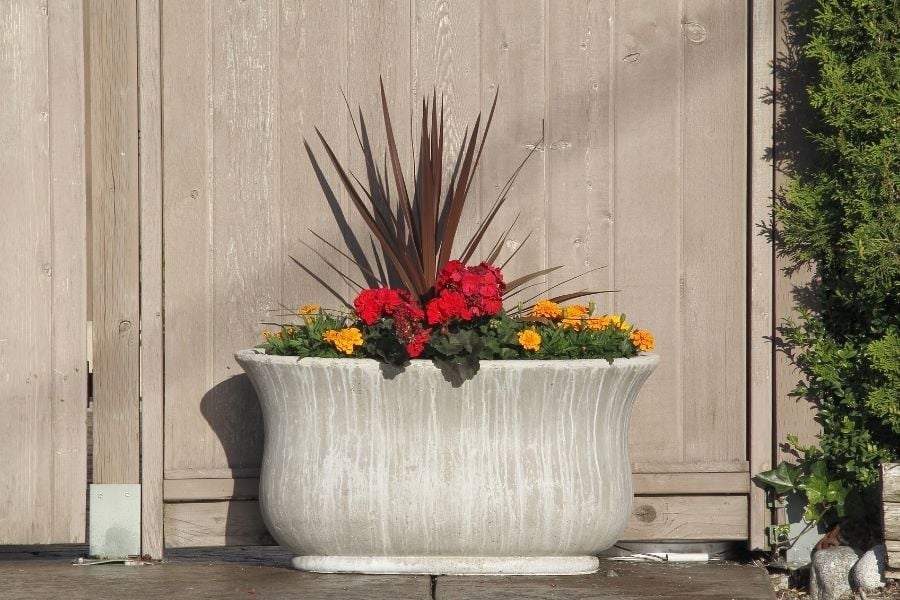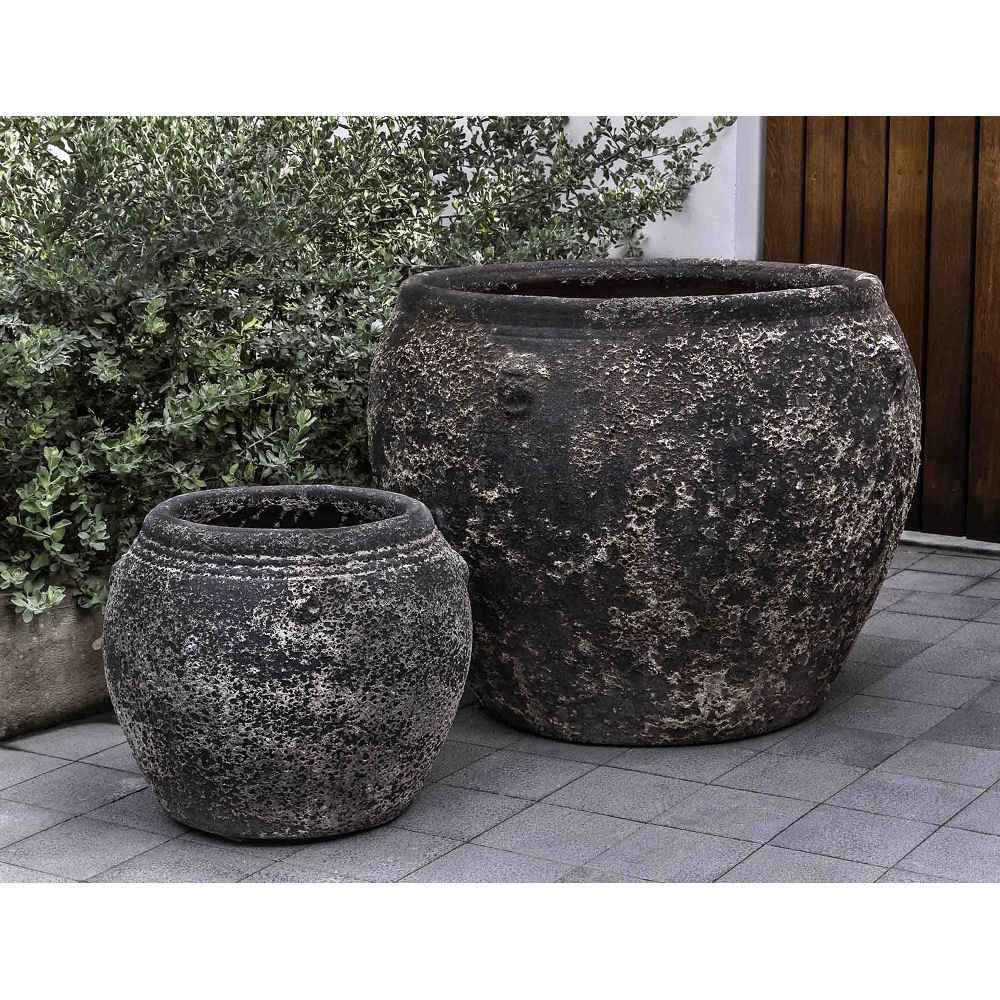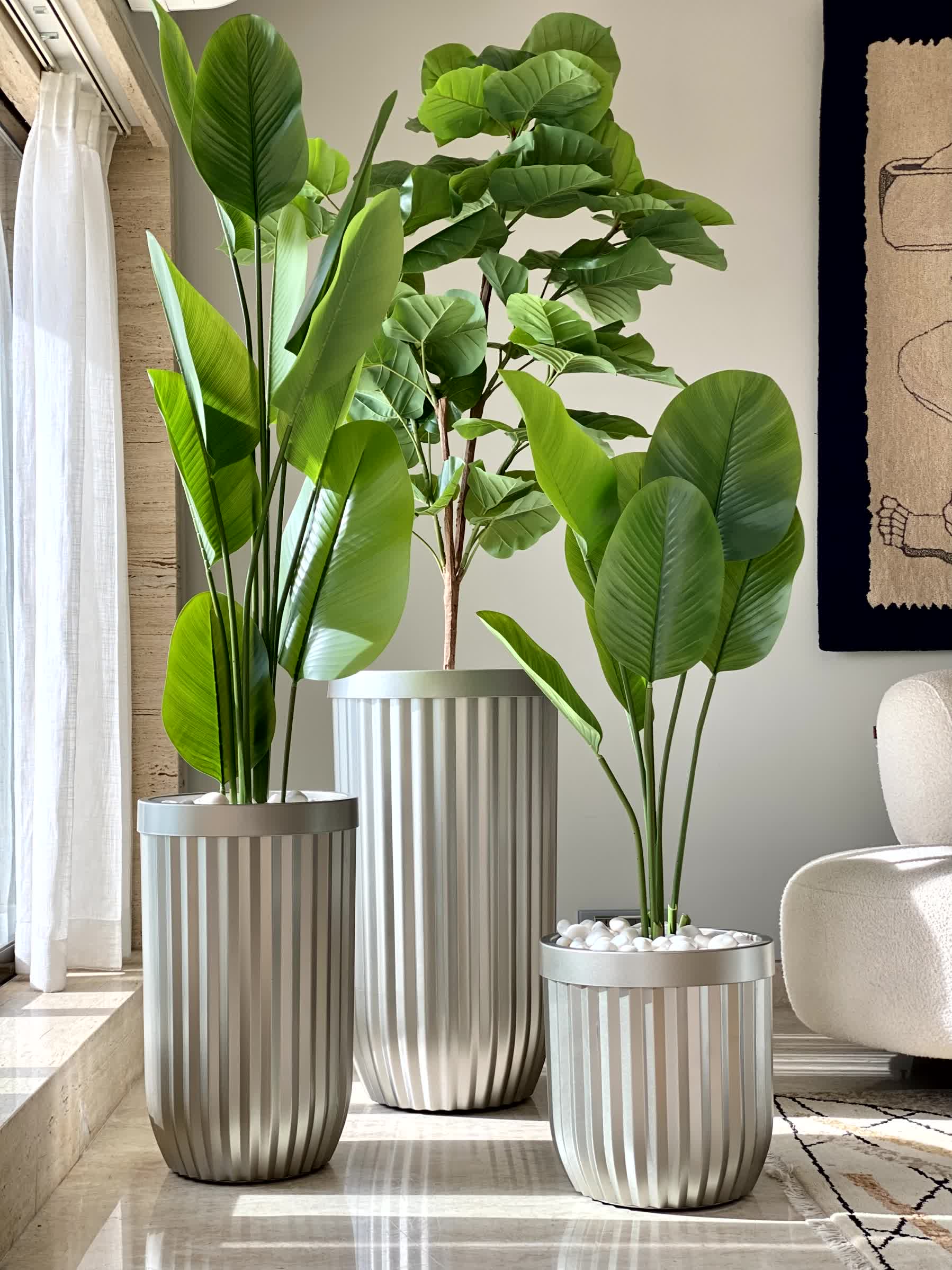Big decorative planters are more than just containers for plants; they’re statement pieces that can elevate the atmosphere of any space—both indoors and out. In my own journey as a home decorator and plant enthusiast, I’ve come to appreciate how these beautiful structures can transform a dull corner into a vibrant oasis. Whether you’re a seasoned indoor gardener or just beginning your journey, big decorative planters can be a remarkable addition to your home. In this guide, we’ll explore everything you need to know about big decorative planters, including styles, benefits, care tips, and more.
What Are Big Decorative Planters?
Big decorative planters are oversized pots designed to hold plants while adding visual appeal to your environment. They come in various shapes, materials, and designs, making them suitable for various settings, from contemporary homes to rustic gardens.
Types of Big Decorative Planters
There are several types of big decorative planters to choose from, each providing a unique aesthetic and functionality:
- Ceramic Planters: Known for their vibrant glazes and intricate designs, ceramic planters can add a touch of elegance to your space.
- Wooden Planters: Perfect for a rustic or natural look, wooden planters bring warmth and earthiness to gardens and patios.
- Metal Planters: Offering durability and a modern edge, metal planters can withstand the elements while providing a sleek appearance.
- Concrete Planters: These are heavy-duty and ideal for larger plants, providing stability and a minimalist aesthetic.
- Plastic Planters: Lightweight and versatile, plastic planters come in various colors and designs, making them perfect for any theme.
Benefits of Using Big Decorative Planters
Integrating big decorative planters into your space brings numerous benefits:
1. Aesthetically Pleasing
Big decorative planters serve as focal points, enhancing the visual appeal of your rooms or gardens. They can complement your home’s style while showcasing your personality through plant selection and pot choice.

2. Versatility
Whether indoors or outdoors, big decorative planters can be placed in a variety of locations. From entryways to patio corners, the options are limitless.
3. Improved Air Quality
Plants are known to purify the air, and larger containers provide more soil, allowing for larger plants. This means improved air quality and a healthier living environment.

4. Space Utilization
Large planters help make the most of limited space, allowing you to vertically garden and maximize your planting area.
Choosing the Right Big Decorative Planter
Before you invest in big decorative planters, consider the following factors:

1. Material
The material impacts both the aesthetic and durability. Choose a material that complements your existing décor and can withstand the local climate.
2. Size and Scale
Ensure you select a planter that is proportional to your space. A massive planter in a small area can overwhelm the space, while a smaller planter in a vast area may look lost.

3. Drainage
Proper drainage is crucial to avoid waterlogging. Always check if the planter has drainage holes or if you need to modify it.
4. Style
Choose a style that reflects your personality—be it modern, traditional, or eclectic. This will enhance your home’s aesthetics and make the planter a true statement piece.

Comparison of Popular Big Decorative Planters
| Material | Durability | Aesthetic Appeal | Price Range | Best For |
|---|---|---|---|---|
| Ceramic | Moderate | High | $$ | Indoor use |
| Wood | Moderate | High | $$ | Outdoor use |
| Metal | High | Moderate | $$$ | Contemporary settings |
| Concrete | Very High | Low | $$ | Outdoor use |
| Plastic | Low | Moderate | $ | All types |
Planting in Big Decorative Planters
Once you’ve selected the perfect planter, it’s time to decide what to plant. Here are a few tips on how to plant effectively:

1. Soil Selection
Use high-quality potting soil suitable for the types of plants you are planning to grow. Consider adding perlite or vermiculite for aeration.
2. Choosing Plants
When selecting plants, consider their growth habits, light requirements, and how they will look together. Mixing different heights, colors, and textures can create a stunning planter display.
3. Arrangement
Start with larger plants in the back (if the planter is against a wall) and fill in with medium and smaller plants. This will create a tiered effect that’s pleasing to the eye.
4. Watering
Establish a watering routine based on the plant needs. Remember that larger planters retain moisture longer but check for specific watering needs for each plant type.
Care and Maintenance of Big Decorative Planters
To keep your big decorative planters looking their best, regular care is essential:
1. Monitoring Water Levels
Always check the moisture level in the soil before watering. Overwatering can lead to root rot, while underwatering can stunt plant growth.
2. Fertilization
Use a balanced fertilizer during the growing season to provide nutrients. Follow the manufacturer’s instructions to avoid over-fertilization.
3. Pruning
Regularly prune dead or yellowing leaves to encourage growth and maintain a tidy appearance.
4. Seasonal Changes
Consider moving your outdoor planters during extreme weather conditions. Heavy rain or frost can damage certain plants, while strong winds can topple lightweight planters.
Pros and Cons of Big Decorative Planters
Pros
- Enhances the aesthetic of any space.
- Can accommodate larger plants.
- Versatile for indoor and outdoor use.
- Improves air quality.
Cons
- Can be heavy and difficult to move when filled.
- May require more soil and water compared to smaller planters.
- Cost can be higher than smaller options.
FAQs about Big Decorative Planters
What materials are best for big decorative planters?
The best materials depend on your aesthetic preferences and intended use. Ceramic and fiberglass are great for indoor use, while concrete and metal can withstand outdoor conditions.
How do I prevent my plants from drying out in big decorative planters?
Ensure you use quality potting soil that retains moisture and consider adding a layer of mulch on top to reduce evaporation. Regular watering is also necessary.
Can I use big decorative planters for outdoor plants in winter?
Yes, but it’s essential to bring more vulnerable plants indoors or protect them with coverings. Ensure your planter has adequate drainage to prevent waterlogging during snow or rain.
What are some popular plants for big decorative planters?
Popular options include ferns, palm trees, rubber plants, and flowering shrubs, depending on your environment and light conditions.
How often should I repot my plants in big decorative planters?
This depends on the plant type, but generally, repotting every 1-2 years is recommended to refresh the soil and allow for growth.
Conclusion: Elevate Your Space with Big Decorative Planters
Big decorative planters are an exceptional way to enhance your living or working space. With a variety of styles and sizes available, you’re sure to find the perfect match for your decor and plant preferences. Remember to consider the factors outlined in this guide to choose the ideal planter for your needs, and enjoy the beauty they bring into your life. Happy planting!